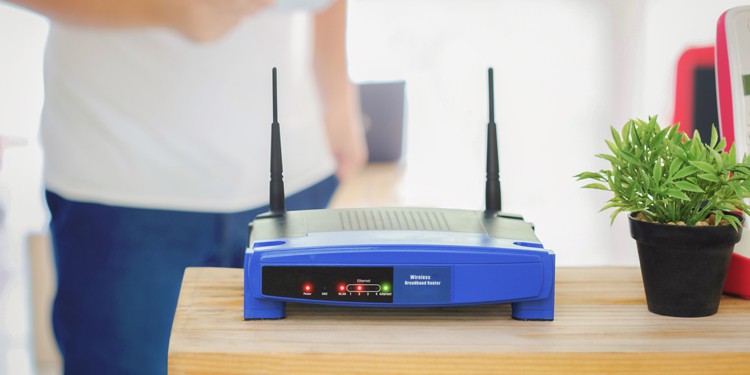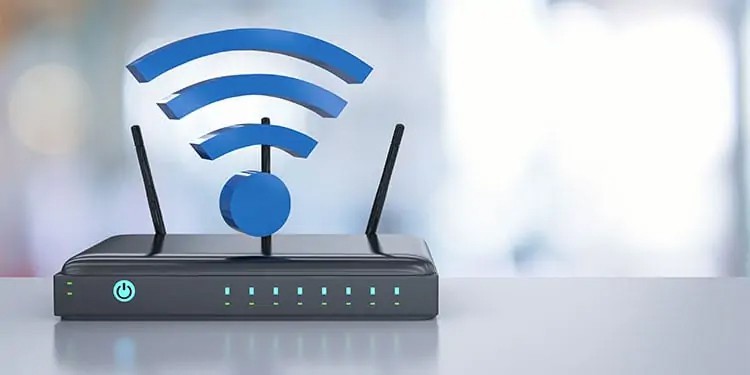Moreover, the latest routers available in the market come equipped with different features like beamforming, dual bands, enhanced security, and others. You will miss some of these features if you continue with the same routers for ages. Also, using the same router for a long period can compromise the security of the network as the new ones come with strong security protocols.So, when is the best time to replace your router? In this article, we will try to answer just that.
How Long Do Routers Last?
The longevity of the routers can depend upon factors like usage and maintenance. Routers used rigorously can suffer from overheating and component damage. In such cases, the routers hardly serve for a few years. However, a well maintained router can be used well for even more than five years. Some other factors that determine how long a router will last are listed here.
Brand: If you have been using the router provided by your ISP it is very likely to break down very soon. That’s why getting one from a trusted brand is important. Some router manufacturers provide a good warranty period along with years of technical support. Thus, purchasing a branded quality access point will last you for a long.Evolving Router Technology: The 5GHz routers have recently been a popular choice among users. However, these routers will get outdated once the newly launched Wi-Fi 6E band routers roll out in the market. This suggests how quickly the router technology is evolving over time.
Signs That Your Router is Dying
It is common for the router to start performing poorly after long-term use. Here are several warning indications that show the router is losing its functionality or probably dying. Additionally, it is advised that you decide to upgrade if you see these signs in your router.
Green Indicator lights not turning on or taking time to flashSlow data transfer speedsThe router is not responsiveFrequent and random restartsFrequently disconnecting from the internet or Wi-Fi
When Is It Time to Upgrade?
Generally, you need to upgrade if you are getting issues on your internet, and the Wi-Fi router is responsible for it. Similarly, if you have many devices to connect to the Wi-Fi, it’s good to invest in a new dual-band router. Additionally, if the router you are using contains physical damage, it is obvious that you should upgrade. Some other reasons for you to upgrade the routers are discussed here.
Outdated Router
To say how much is old enough for a router is difficult. However, the experts recommend upgrading the Wi-Fi router every five years. Hence, if you do not upgrade these network peripherals soon enough, you make many compromises in aspects like security, performance, and your overall internet experience. For instance, you can take the Wifi 6, which comes with the WPA3 security protocol with improved encryption and multifactor authentication. The data transfer rate is also extended to a max of up to 9.6Gbps. However, if you have been using a Wi-fi 5-based router, you will be stuck with the WPA 2 security protocol and lower transfer speeds.Furthermore, you must also think of changing the router if you use the router provided by your ISPs. These default routers from ISPs are low on quality to do some cost-cutting. It is no wonder if these routers start frequently failing after a few years of use.
Slow Internet Speed
There are several reasons why your internet speed might be suffering. You cannot ignore the likelihood that your router may also be responsible for this. To check whether the router is the culprit, connect your device to the router using an ethernet cable and perform a speed test. Now, rerun the speed test after connecting the device to Wi-Fi.The router is fine for use if you get similar numbers from wired and wireless connections. However, if the Wi-Fi speed test numbers are quite low in comparison, then it is time for you to make an upgrade.Moreover, check the router’s green lights to know if it is working well. If you see a router rebooting frequently, it also signifies that it’s on the verge of dying.
Limitations of Single Band Router
A single-band router with a 2.4 GHz frequency has lots of downsides, like higher congestion and lesser network stability. To overcome these limitations, you can use a dual-band router that capitalizes on the ability of both 2.4GHz and 5GHz frequencies. The 5GHz facilitates high speed and stable transmission while the 2.4GHz gives a better range. Therefore, it’s best to upgrade to a dual-band router for better internet speeds and if there are many users connected to the same network.
Decreasing Wi-Fi range
If you notice the Wi-Fi signals not reaching the corners of your home like they used to, it also might indicate that the Wi-Fi router very soon needs an upgrade. The physical interference from walls and other stuff also can be the reason for the low range. That’s why first of all, check the range by limiting the interferences around the router before you purchase a new one.
Limited Bandwidth Utilization
The theoretical speed limits most modern routers handle can range from 150 Mbps to a few Gbps. In most cases, these speed rates that the router supports are always higher than what you get from the ISPs.However, you will be limiting yourself from experiencing the actual internet speed if your router supports lower rates than the speed your ISP offers. This is where the routers can be a bottleneck for your internet connection. Therefore, it is advisable always to get a router that is compatible with the broadband package you are getting from the ISP.
Connectivity Issues
Most manufacturers claim that their Wi-Fi router can simultaneously handle around 250 devices connected to it. However, the case is different in real-life usage. If multiple devices are trying to connect to the same Wi-Fi network, you might experience the router being unable to manage the connections smoothly. The Wi-Fi connection also gets disconnected quite frequently. In such cases, it’s wise to get a new router. Moreover, if you have a device that supports the latest wireless technologies, For instance, the Wi-Fi 6, but the Wi-Fi router has no support for it, you might be missing out a lot. Therefore, You also need a compatible router to get the best out of the latest network technologies.
Overheating Issues
The routers are not designed with hefty cooling mechanisms to take on the thermals. However, most routers can easily sustain heat beyond 100 degrees Fahrenheit. It is ideal for keeping the router thermals within range (below 90 degrees) to get the best performance out of it. If no measure can keep it within control, then it is best to purchase a new Wi-Fi router.





